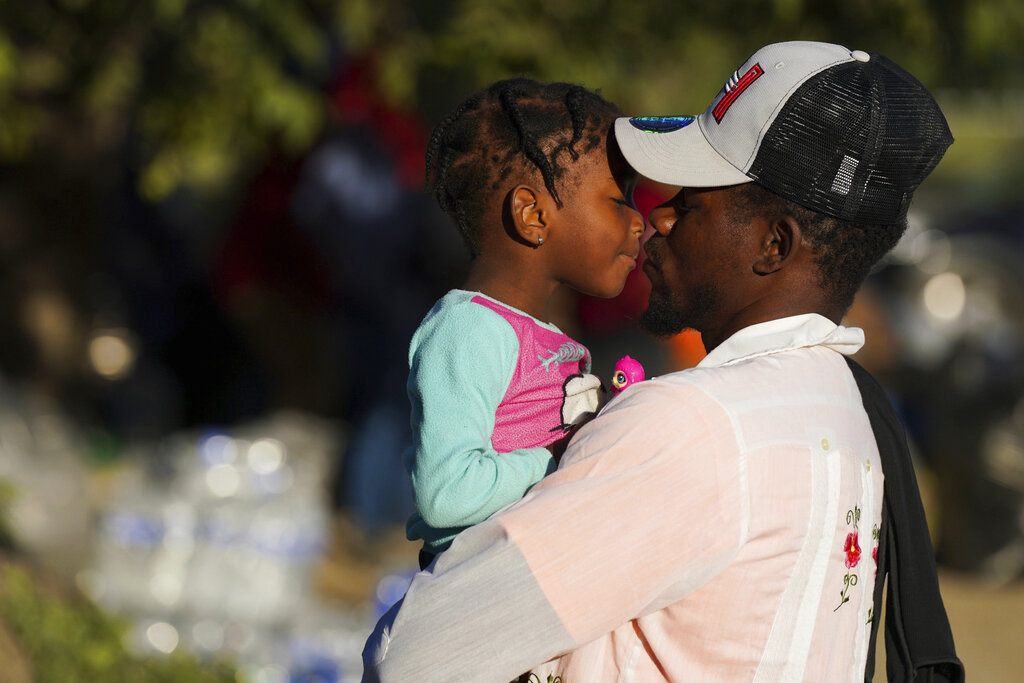
BYU faculty and students reacted to the thousands of Haitian refugees headed toward the U.S.-Mexico border. These refugees are fleeing natural disasters and political instability, seeking new opportunities after already attempting to do so in other countries.
Michael Forvil, a neuroscience major and native from Petit-Goave, Haiti, shared how many Haitians have been traveling through various countries and in all kinds of drastic conditions. The road isn’t an easy one, he said, and many do not have the luxury of coming out alive.
“They’ve all traveled through very dangerous places. It’s like they’re willing to die in order to find a better life. That should tell everyone how bad it is in Haiti,” Forvil said.
BYU history professor Ignacio Garcia is an expert in race and Latino history. “It’s shameful what we’ve done over the years. We’ve demonized them. We have to expand the notion of a refugee from someone that is escaping war to those that are fleeing tremendous economic troubles,” he said.
Jane Lopez, professor of sociology and researcher of citizenship at BYU, has studied the border extensively as well as lived there. She shared her opinion on how Americans as a whole have the privilege of not knowing what truly happens at the U.S-Mexico border.
“Most people actually want to stay where they’re from. In their case, the conditions that have motivated their departure are so significant that they were forced to leave,” she said. “It’s something we should all understand but we choose not to when we lean into our privilege.”
Thousands of Haitian refugees were met with force at the border. According to The New York Times, investigations are underway as Vice President Kamala Harris plans to discuss the issue with Alejandro N. Mayorkas, the secretary of the Homeland Security Department.
“Human beings should never be treated that way,” Harris told the Times.
Haiti was already one of the poorest countries in the world when it experienced the 2010 earthquake that killed 200,000 people. In August, Haitiexperienced another devastating 7.2 magnitude earthquake, just two days before being hit directly by Tropical Depression Grace. With a combined toll of over 2,200 dead, 12,000 injured and hundreds of thousands displaced, many in remote regions are still in need of aid.
Forvil was living in Haiti when the 2010 earthquake happened. “I saw how devastating it was and we are still trying to recover from it,” he said.
The pandemic has exacerbated the woes following the two earthquakes. Less than one-half of 1% of the population has received even a first dose of the COVID-19 vaccine, refugee law and policy expert Karen Musalo told the Associated Press.
OnJuly 7, Haitians alsoexperienced the assassination of President Jovenel Moïse leading to greater uncertainty and political instability in the country.
The U.S. wasn’t the original destination for many of these Haitian refugees. Many had originally traveled to South America, specifically Brazil and Chile.
“I remember that it was around 2016 that I started seeing many Haitians in Chile. I even taught a lot of them while on my mission,” said Fernando Ureta Muñoz, a pre-business major from Viña Del Mar, Chile, who also served a mission in Santiago, Chile.
Many Haitian refugees had originally been in Brazil because of temporary jobs that involved the 2014 World Cup and 2016 Olympics.
“In the beginning, it was easy to find jobs. But once they couldn’t find any more they moved on to Chile and now they’re faced with moving somewhere else since migration policies are becoming increasingly stricter,” Ureta said.
Garcia thinks people here in the U.S. should be more aware of the tragedy that is occurring and be more open to helping.
“If we saw 8,000 blonde and blue-eyed people we would be finding ways to bring them in and we would have families all over the place opening their homes to them. But these people are black and brown and coming from places of instability. They are very desperate,” Garcia said.




